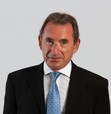Stephen Clapham's Blog, page 2
March 24, 2025
Steve is featured in a Hedgeweek Webinar on Pricing Power
The post Steve is featured in a Hedgeweek Webinar on Pricing Power appeared first on Behind The Balance Sheet.
March 17, 2025
Steve’s article on finance Substack was featured in the FT
The post Steve’s article on finance Substack was featured in the FT appeared first on Behind The Balance Sheet.
March 5, 2025
#45 – The Chess Master
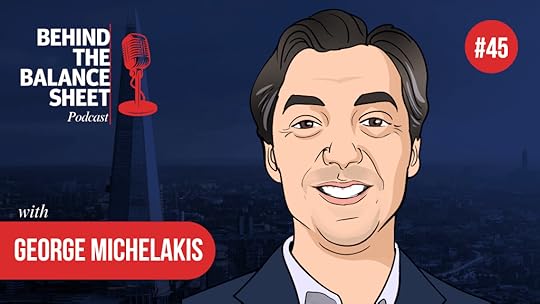 /*! elementor - v3.22.0 - 24-06-2024 */.elementor-widget-text-editor.elementor-drop-cap-view-stacked .elementor-drop-cap{background-color:#69727d;color:#fff}.elementor-widget-text-editor.elementor-drop-cap-view-framed .elementor-drop-cap{color:#69727d;border:3px solid;background-color:transparent}.elementor-widget-text-editor:not(.elementor-drop-cap-view-default) .elementor-drop-cap{margin-top:8px}.elementor-widget-text-editor:not(.elementor-drop-cap-view-default) .elementor-drop-cap-letter{width:1em;height:1em}.elementor-widget-text-editor .elementor-drop-cap{float:left;text-align:center;line-height:1;font-size:50px}.elementor-widget-text-editor .elementor-drop-cap-letter{display:inline-block}
/*! elementor - v3.22.0 - 24-06-2024 */.elementor-widget-text-editor.elementor-drop-cap-view-stacked .elementor-drop-cap{background-color:#69727d;color:#fff}.elementor-widget-text-editor.elementor-drop-cap-view-framed .elementor-drop-cap{color:#69727d;border:3px solid;background-color:transparent}.elementor-widget-text-editor:not(.elementor-drop-cap-view-default) .elementor-drop-cap{margin-top:8px}.elementor-widget-text-editor:not(.elementor-drop-cap-view-default) .elementor-drop-cap-letter{width:1em;height:1em}.elementor-widget-text-editor .elementor-drop-cap{float:left;text-align:center;line-height:1;font-size:50px}.elementor-widget-text-editor .elementor-drop-cap-letter{display:inline-block} George Michelakis, was a top 3 global under-20 chess player. He now runs a $2bn long short equity hedge fund with a simple philosophy but a highly impressive track record.
SUMMARYIn his youth, George Michelakis, was a top 3 global under-20 chess player. No surprise he is pretty good at investing too, and runs a $2bn long short equity hedge fund out of London. Since 2006, he has compounded capital at a rate of 5.35x vs 3.43k for the MSCI world, on net exposure of 30-45%. That’s an impressive record but astonishingly, he entered his longest running short position 10 years ago.
We talked about his investing philosophy, his theory about a lifestyle recession, why shorting is critical to performance, how he manages the fund and the team, why he focuses on management and why, as in chess, man plus machine or analyst plus AI will beat the lone human, which has profound implications for investors.
/*! elementor - v3.22.0 - 24-06-2024 */.elementor-widget-image-box .elementor-image-box-content{width:100%}@media (min-width:768px){.elementor-widget-image-box.elementor-position-left .elementor-image-box-wrapper,.elementor-widget-image-box.elementor-position-right .elementor-image-box-wrapper{display:flex}.elementor-widget-image-box.elementor-position-right .elementor-image-box-wrapper{text-align:end;flex-direction:row-reverse}.elementor-widget-image-box.elementor-position-left .elementor-image-box-wrapper{text-align:start;flex-direction:row}.elementor-widget-image-box.elementor-position-top .elementor-image-box-img{margin:auto}.elementor-widget-image-box.elementor-vertical-align-top .elementor-image-box-wrapper{align-items:flex-start}.elementor-widget-image-box.elementor-vertical-align-middle .elementor-image-box-wrapper{align-items:center}.elementor-widget-image-box.elementor-vertical-align-bottom .elementor-image-box-wrapper{align-items:flex-end}}@media (max-width:767px){.elementor-widget-image-box .elementor-image-box-img{margin-left:auto!important;margin-right:auto!important;margin-bottom:15px}}.elementor-widget-image-box .elementor-image-box-img{display:inline-block}.elementor-widget-image-box .elementor-image-box-title a{color:inherit}.elementor-widget-image-box .elementor-image-box-wrapper{text-align:center}.elementor-widget-image-box .elementor-image-box-description{margin:0}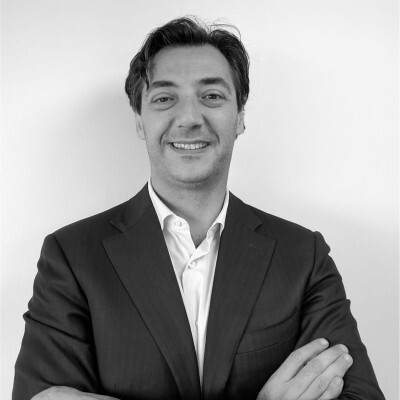 GETTING INTO INVESTING
GETTING INTO INVESTINGBefore getting into hedge funds, George spent time in private equity, where he met with hundreds of management teams and learned about the importance of management, a central part of his philosophy today. But the ability to short added a new dimension and he relished the additional intellectual challenge imposed by thinking both about the fundamentals and the stockmarket perception.
Some takeawaysAs ever, this was a wide ranging conversation and a few highlights are extracted here, but please, we think it’s really best to listen to the show.
George’s ApproachGeorge talks about getting ahead of change – anticipating that a change is coming or that it is about to be recognised by the market – it’s the combination of understanding the fundamentals and the market perception of the business.
Both the short and long sides of the book are important. The fund generally has around 25 longs and twice that number of shorts. They generally have a 200% gross, which George thinks you need to make a long-short approach work. With a 120% long and 80% short book, he ends up with roughly 5% in a long and 1-2% in a short on average.
He will have an individual long as high as 10% of the fund so to own a stock, he has to be comfortable owning a 10% position and his long book is focused on high quality companies. Conversely, the short book is full of bad companies and George says “problems don’t get fixed easily”, and he entered his longest running short position 10 years ago! Steve wonders if this is a record.
AccountingGeorge has said in the past that if he had to pick one leading indicator on the short side, it’s aggressive accounting – it tends to be symbolic of a management team that’s trying to prove that it’s better than it really is.
Accounting is a big driver for shorts, and for under-performing longs. Yet investors don’t spend more time on this. George attributes this to the fact that it’s pretty dull and it’s much more interesting exciting and plain more fun to pick winning longs. Few funds are that successful on the short side.
George uses a football analogy – the best football teams are just as good in defence as at scoring goals. But accounting is critical to successful investing. And this is partly down to the market environment. George likens it to security – nobody worries about having an alarm in their home on a bright sunny day; it’s at night, in the dark, that you think about upgrading your alarm system.
ShortsShorting is a real source of alpha at Gladstone and is one of their core skills. George doesn’t use a shorting team and a long team, everyone is a generalist. He thinks the separation of roles is a thing of the past, as AI assistants do much more of the heavy lifting and repetitive tasks. There is an element of the mechanical about say accounting shorts, but he thinks much of that will in future be automated.
Even so, Gladstone use Behind the Balance Sheet to sharpen their accounting skills and please don’t feel that this is guaranteed to happen, and it’s not necessarily short term.
He sees common mistakes in shorting:
Earnings headwinds don’t generate much alphaOverly thematic shorts can get you in trouble; just because luxury is having a difficult time doesn’t mean that Hermes will be affected. Or if the autos are in trouble, it may not affect Ferrari.And shorting after a big leg down, may mean alpha is elusive.George thinks you really need to have the short culture to make this work.
Lifestyle RecessionGeorge has a theory which he calls the lifestyle recession. In Covid, there was plenty of money washing round and a lot of brands benefited from that surplus disposable income being spent. And of course that was extrapolated by the market. But as consumers have tightened their belts, there has been a shortfall and George is long true luxury and short aspirational luxury which consumers have less need for and less money to buy.
He is therefore long Ferrari and short some other “luxury” names, one of which he names in the podcast.
About George Michelakis
George Michelakis founded Gladstone Management in 2005, launched the Lasker Fund in 2006 and is CIO of the firm. Previously, George was an investment team member at Lansdowne Partners (Developed Markets Fund, 2003- 2005). Check out our past conversations with Pete Davies and with Stuart Roden who started that fund.
George’s first professional role was in the Investment Banking Division – M&A at Credit Suisse in London, and then he was a Principal in the Private Equity business of Capital Z Partners. It managed the largest private equity fund dedicated to financial services and also provided seed capital to private equity and hedge funds. Whilst at Capital Z, he held various board positions at a number of the portfolio companies in the software, credit information and insurance sectors.
George qualified as an Actuary in 1996 (Institute of Actuaries, London) after graduating top of his class with 1st Class Honours (BBusSci, Actuarial Science, 1995) from the University of Cape Town in South Africa.
Whilst in his youth George competed in both South African and International chess events and was awarded the FIDE International Chess Master title in 1995. He was 3rd in the World Championship Under 20 in 1992 and was South African chess champion and South African Number One at the World Chess Olympiad (1996, 2004).
The Lasker fund is named after former world chess champion Emanuel Lasker who is considered one of the greatest chess players of all time.
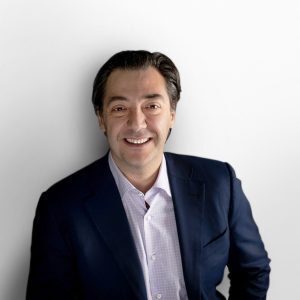
/*! elementor - v3.22.0 - 24-06-2024 */.elementor-widget-divider{--divider-border-style:none;--divider-border-width:1px;--divider-color:#0c0d0e;--divider-icon-size:20px;--divider-element-spacing:10px;--divider-pattern-height:24px;--divider-pattern-size:20px;--divider-pattern-url:none;--divider-pattern-repeat:repeat-x}.elementor-widget-divider .elementor-divider{display:flex}.elementor-widget-divider .elementor-divider__text{font-size:15px;line-height:1;max-width:95%}.elementor-widget-divider .elementor-divider__element{margin:0 var(--divider-element-spacing);flex-shrink:0}.elementor-widget-divider .elementor-icon{font-size:var(--divider-icon-size)}.elementor-widget-divider .elementor-divider-separator{display:flex;margin:0;direction:ltr}.elementor-widget-divider--view-line_icon .elementor-divider-separator,.elementor-widget-divider--view-line_text .elementor-divider-separator{align-items:center}.elementor-widget-divider--view-line_icon .elementor-divider-separator:after,.elementor-widget-divider--view-line_icon .elementor-divider-separator:before,.elementor-widget-divider--view-line_text .elementor-divider-separator:after,.elementor-widget-divider--view-line_text .elementor-divider-separator:before{display:block;content:"";border-block-end:0;flex-grow:1;border-block-start:var(--divider-border-width) var(--divider-border-style) var(--divider-color)}.elementor-widget-divider--element-align-left .elementor-divider .elementor-divider-separator>.elementor-divider__svg:first-of-type{flex-grow:0;flex-shrink:100}.elementor-widget-divider--element-align-left .elementor-divider-separator:before{content:none}.elementor-widget-divider--element-align-left .elementor-divider__element{margin-left:0}.elementor-widget-divider--element-align-right .elementor-divider .elementor-divider-separator>.elementor-divider__svg:last-of-type{flex-grow:0;flex-shrink:100}.elementor-widget-divider--element-align-right .elementor-divider-separator:after{content:none}.elementor-widget-divider--element-align-right .elementor-divider__element{margin-right:0}.elementor-widget-divider--element-align-start .elementor-divider .elementor-divider-separator>.elementor-divider__svg:first-of-type{flex-grow:0;flex-shrink:100}.elementor-widget-divider--element-align-start .elementor-divider-separator:before{content:none}.elementor-widget-divider--element-align-start .elementor-divider__element{margin-inline-start:0}.elementor-widget-divider--element-align-end .elementor-divider .elementor-divider-separator>.elementor-divider__svg:last-of-type{flex-grow:0;flex-shrink:100}.elementor-widget-divider--element-align-end .elementor-divider-separator:after{content:none}.elementor-widget-divider--element-align-end .elementor-divider__element{margin-inline-end:0}.elementor-widget-divider:not(.elementor-widget-divider--view-line_text):not(.elementor-widget-divider--view-line_icon) .elementor-divider-separator{border-block-start:var(--divider-border-width) var(--divider-border-style) var(--divider-color)}.elementor-widget-divider--separator-type-pattern{--divider-border-style:none}.elementor-widget-divider--separator-type-pattern.elementor-widget-divider--view-line .elementor-divider-separator,.elementor-widget-divider--separator-type-pattern:not(.elementor-widget-divider--view-line) .elementor-divider-separator:after,.elementor-widget-divider--separator-type-pattern:not(.elementor-widget-divider--view-line) .elementor-divider-separator:before,.elementor-widget-divider--separator-type-pattern:not([class*=elementor-widget-divider--view]) .elementor-divider-separator{width:100%;min-height:var(--divider-pattern-height);-webkit-mask-size:var(--divider-pattern-size) 100%;mask-size:var(--divider-pattern-size) 100%;-webkit-mask-repeat:var(--divider-pattern-repeat);mask-repeat:var(--divider-pattern-repeat);background-color:var(--divider-color);-webkit-mask-image:var(--divider-pattern-url);mask-image:var(--divider-pattern-url)}.elementor-widget-divider--no-spacing{--divider-pattern-size:auto}.elementor-widget-divider--bg-round{--divider-pattern-repeat:round}.rtl .elementor-widget-divider .elementor-divider__text{direction:rtl}.e-con-inner>.elementor-widget-divider,.e-con>.elementor-widget-divider{width:var(--container-widget-width,100%);--flex-grow:var(--container-widget-flex-grow)} BOOK RECOMMENDATION
Interestingly, we talked quite a bit about left brain and right brain thinking and George therefore recommended The Master and His Emissary: The Divided Brain and the Making of the Western World by Iain McGilchrist. The book is about how the brain is structured and how that influences our thinking. This book was also recently recommended by Tom Slater of Baillie Gifford, our guest in January!
 Buy on amazon HOW STEVE KNOWS THE GUEST
Buy on amazon HOW STEVE KNOWS THE GUESTGladstone is a training client of Behind the Balance Sheet but Steve first met George at a small private conference where George took Q&A, and Steve asked him to come on the podcast. It says quite a lot about the Gladstone setup that the analysts themselves took the initiative to organise their own training without the CIO getting involved.
Prev#44 – The Think Tank Manager Steve’s article on finance Substack was featured in the FTNext
The post #45 – The Chess Master appeared first on Behind The Balance Sheet.
January 28, 2025
Steve was interviewed on Times Radio in the UK
The post Steve was interviewed on Times Radio in the UK appeared first on Behind The Balance Sheet.
December 23, 2024
#42 – The Credit Expert
Greg Peters is co-CIO of PGIM, a $700bn credit manager and an authority on markets.
/*! elementor - v3.22.0 - 24-06-2024 */.elementor-widget-image{text-align:center}.elementor-widget-image a{display:inline-block}.elementor-widget-image a img[src$=".svg"]{width:48px}.elementor-widget-image img{vertical-align:middle;display:inline-block}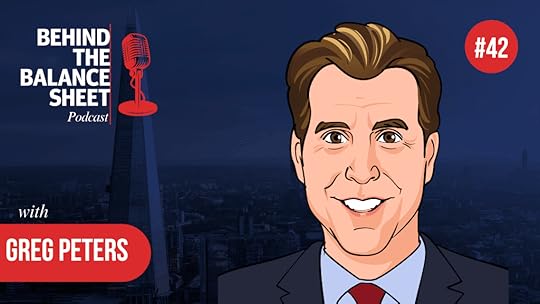 SUMMARY
SUMMARYWhen it comes to credit, few people have better credentials than Greg Peters, co-CIO of PGIM, with AUM of $700bn. In this fascinating conversation, we discuss the differences between investing in equities and credit, the legacy of the zero interest rate period, why PGIM uses scenario based forecasting in preference to single point estimates, why covenants have gone out of fashion and why that’s dangerous, ad much more. Listen to the end for an update on the outlook for markets in 2025.
/*! elementor - v3.22.0 - 24-06-2024 */.elementor-widget-image-box .elementor-image-box-content{width:100%}@media (min-width:768px){.elementor-widget-image-box.elementor-position-left .elementor-image-box-wrapper,.elementor-widget-image-box.elementor-position-right .elementor-image-box-wrapper{display:flex}.elementor-widget-image-box.elementor-position-right .elementor-image-box-wrapper{text-align:end;flex-direction:row-reverse}.elementor-widget-image-box.elementor-position-left .elementor-image-box-wrapper{text-align:start;flex-direction:row}.elementor-widget-image-box.elementor-position-top .elementor-image-box-img{margin:auto}.elementor-widget-image-box.elementor-vertical-align-top .elementor-image-box-wrapper{align-items:flex-start}.elementor-widget-image-box.elementor-vertical-align-middle .elementor-image-box-wrapper{align-items:center}.elementor-widget-image-box.elementor-vertical-align-bottom .elementor-image-box-wrapper{align-items:flex-end}}@media (max-width:767px){.elementor-widget-image-box .elementor-image-box-img{margin-left:auto!important;margin-right:auto!important;margin-bottom:15px}}.elementor-widget-image-box .elementor-image-box-img{display:inline-block}.elementor-widget-image-box .elementor-image-box-title a{color:inherit}.elementor-widget-image-box .elementor-image-box-wrapper{text-align:center}.elementor-widget-image-box .elementor-image-box-description{margin:0}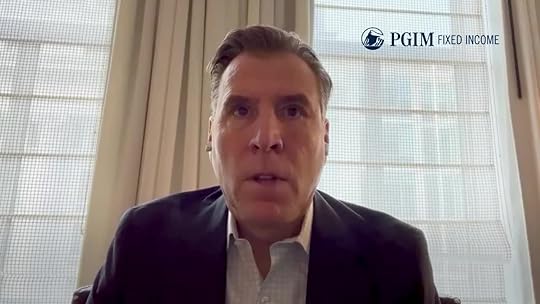 GETTING INTO INVESTING
GETTING INTO INVESTINGGreg started out working for the US Treasury. He then moved to Salomon Smith Barney before joining Morgan Stanley where he was their Global Director of Fixed Income & Economic Research and Chief Global Cross Asset Strategist, responsible for the Firm's macro research and asset allocation strategy. He now is co-CIO of PGIM, a $700bn credit investment firm.
Some takeawaysEquities vs CreditGreg believes equities have done well because of fundamentals. It has been an earnings story not a multiple expansion story (which inherently create more risk).
Zero interest rates are behind us. The adjustment process has been painful for credit investors but they are now in a better place.
The hurdle rate for a credit investor is much lower than for an equities investor because of the way the benchmark indices are constructed. Hence more credit investors should outperform benchmarks.
Corporate Credit
Companies have loaded up with low cost debt and will ultimately have to refinance. Greg expects more distress and more defaults, and he thinks we are entering a new era of the credit cycle, one we haven’t seen for a long time. Zero interest rates allowed many companies to survive that probably shouldn’t have. He expects that there will be an elevated distress cycle for a period. A recession would pull that forward.
Scenario based forecasting
PGIM uses scenario-based forecasting. Greg believes that single point estimates give a false precision which are popular as the CNBC soundbite culture wants “Give me a Number”. Using scenarios forces you to tink of a company in multiple dimensions – what happens if inflations spikes, or growth rolls over, and monitoring those changes over time.
The team comes up with plausible paths and they deliberately spread the parameters as they don’t want to be centred around the mean or the analysis loses efficacy. The parameters change over time and the changes are often highly instructive.
The process gives them a calibration of upside and downside. If a recession is probable, as at the time of recording in mid-2024, the probability was elevated at c.3x normal, they look at credit spreads. And obviously if credits preds are tight and there is a higher chance of extreme loss, they want to then be more cautious.
Covenants
These have been set aside for the last 15-20 years. They used to be the hallmark of credit investing. But there has been too much capital chasing the opportunity set, so borrowers have been able to either offer no covenants or make them so complicated that they are difficult to enforce.
We haven’t had a credit cycle, so we shall see what happens when we do, but leverage can be twice its face value when pro-forma EBITDA is used. Often multiples are quite heroic, yet investors are happy to underwrite the credit.
High Yield MarketAlthough the macro aspect today is rich in high yield, there is a high level of dispersion, the widest in 15 years, which creates opportunity for credit investors. Greg feels there should be a more natural risk aversion trade today.
When interest rates were zero, investors were forced up the risk curve. There was a lot of unnatural risk-taking then, into things like crypto. There should be a natural shift away from that and Greg is surprised that it hasn’t happened to a greater extent given rate rises.
He attributes this to muscle memory, recency bias, and the fact that many younger investors don’t know any different environment – experience levels in the markets have dipped. Bankruptcies are increasing and bondholders are taking a more draconian stance so things are starting to change. But it takes time. A recession would accelerate the process. But investors are starting to recognise that covenants matter, as does where you are in the capital structure – these haven’t been issues for a long time, but they are growing in weight.
Government BondsUS Treasury funding has to be regular and predictable so the Government cannot suddenly change its issuance depending on what’s rich or cheap and it can therefore take a long time to alter the maturity profile. There is an argument that more long term bonds should have been issued but there was a concern that demand could have been crowded out – it’s a delicate balance.
In a more volatile world, geopolitically, defence spending will have to increase everywhere, not just in the US. Meanwhile, there is a double spend on energy, short term to deliver energy security and longer term to fund the green energy transition. And debt levels are high everywhere.
Greg expects higher inflation which will be one release valve. Companies are willing to spend a little more on supply chain control post Covid – that’s inflationary. As are defence spending and the energy transition. Greg is unsure about the calibration, but the inflation risk is to the upside.
In the last 15 years, there was a persistent undershooting of inflation and in the next 15 years there is likely to be greater risk on the upside. As a result, we shall have a world in which inflation is more volatile, growth will be more volatile and interest rates may also be more volatile.
In a more polarised political system, it creates more unorthodox policy and hence more volatility. Markets like visibility so they will be more volatile. That should manifest itself in higher risk premia. And higher inflation means higher bond yields.
Private Credit
There has been tremendous growth as a by-product and regulatory constructs. To stabilise the financial system they wanted to diffuse risk outside of the banking system. There is less systematic risk but much greater opacity. Regulators have less visibility and less control. It was also boosted by zero rates.
Currently, default and distress are higher on the private side than the public and that may continue. Greg thinks the market may be very different in 5 years – the public-private divide may be less applicable. There is a spectrum of credit and increasingly there will bene credit market.
Companies are increasingly using a combination of private and public credit. Greg thinks there may be one credit market going forward. It will be interesting to see what happens here when defaults pickup. There are already instances of lender on lender violence. The IMF have expressed concern and would like greater visibility and regulation.
FX and Global View
Greg is a long term dollar bull, based on his thesis of US dominance. They divide the world into DM/EM. Some frontier markets are over-extended. But he is happy about differentiation and there are more opportunities to invest across Emerging Markets.
EM is less indebted than DM. France is a great example – Spain is behaving better than Germany or France. And there is a parallel with EM vs DM.
The Fed Put
Central Banks are going to have less flexibility to cut rates as they have to continue to fight inflation. Greg cannot see interest rates getting close to zero again. The market still trades with a central bank put option to it and they have limited capacity to cut.
About Greg Peters
Gregory Peters is Co-Chief Investment Officer of PGIM Fixed Income. Mr. Peters is one of the co-heads on the Multi-Sector Team at PGIM Fixed Income. Prior to joining the Firm in 2014, Mr. Peters was Morgan Stanley’s Global Director of Fixed Income & Economic Research and Chief Global Cross Asset Strategist, responsible for the Firm’s macro research and asset allocation strategy. Earlier, he worked at Salomon Smith Barney and the Department of U.S. Treasury. He received a BA in Finance from The College of New Jersey and an MBA from Fordham University. Mr. Peters is a member of the Fixed Income Analyst Society and the Bond Market Association. Mr. Peters was named a 2018 and 2019 winner of the Pension and Investment Provider Award for Global Multi-Asset Credit
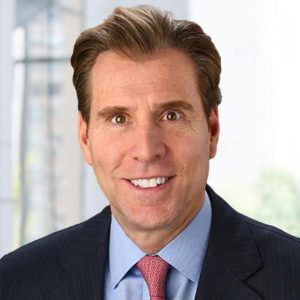
Greg loves books on financial history and thinks they contain important lessons. He recommended 4.
The Caesars Palace Coup: How a Billionaire Brawl Over the Famous Casino Exposed the Power and Greed of Wall Street
Max Frumes
This is a fascinating account of lender on lender violence in the bankruptcy of Caesar’s Palace. This is a cautionary tale as we enter a period of higher defaults.
Barbarians at the Gate: The Fall of RJR Nabisco
Bryan Burrough
This talks about the consequences of debt in the private equity takeover of RJR Nabisco.
The House of Morgan: An American Banking Dynasty and the Rise of Modern Finance
Ron Chernow
Greg used to work at Morgan Stanley and enjoyed this account of the firm’s history.
Chip War: The Fight for the World’s Most Critical Technology
Chris Miller
Greg thinks this is a must read.
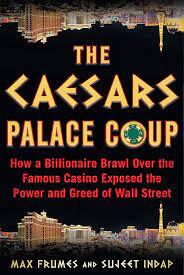 Buy on amazon.com Buy on amazon.co.UK
Buy on amazon.com Buy on amazon.co.UK 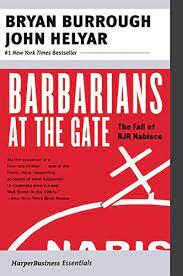 Buy on amazon.com Buy on amazon.co.UK
Buy on amazon.com Buy on amazon.co.UK 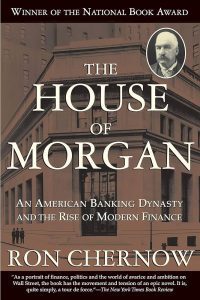 Buy on amazon.com Buy on amazon.co.UK
Buy on amazon.com Buy on amazon.co.UK 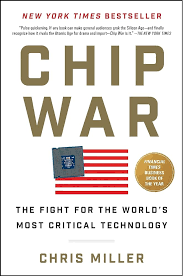 Buy on amazon.com Buy on amazon.co.UK HOW STEVE KNOWS THE GUEST
Buy on amazon.com Buy on amazon.co.UK HOW STEVE KNOWS THE GUESTGreg and Steve had a call a couple of months before recording in June, 2024 on Greg’s next visit to London. Thanks to Nina Jaksic and Nicole Haroutunian at PGIM who made it all happen.
ChaptersTranscript
Prev#41 – The Composer
The post #42 – The Credit Expert appeared first on Behind The Balance Sheet.
November 22, 2024
#41 – The Composer
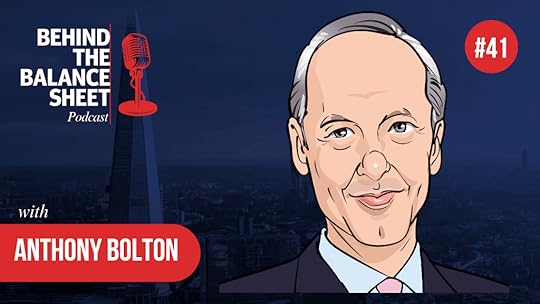 /*! elementor - v3.22.0 - 24-06-2024 */.elementor-widget-text-editor.elementor-drop-cap-view-stacked .elementor-drop-cap{background-color:#69727d;color:#fff}.elementor-widget-text-editor.elementor-drop-cap-view-framed .elementor-drop-cap{color:#69727d;border:3px solid;background-color:transparent}.elementor-widget-text-editor:not(.elementor-drop-cap-view-default) .elementor-drop-cap{margin-top:8px}.elementor-widget-text-editor:not(.elementor-drop-cap-view-default) .elementor-drop-cap-letter{width:1em;height:1em}.elementor-widget-text-editor .elementor-drop-cap{float:left;text-align:center;line-height:1;font-size:50px}.elementor-widget-text-editor .elementor-drop-cap-letter{display:inline-block}
/*! elementor - v3.22.0 - 24-06-2024 */.elementor-widget-text-editor.elementor-drop-cap-view-stacked .elementor-drop-cap{background-color:#69727d;color:#fff}.elementor-widget-text-editor.elementor-drop-cap-view-framed .elementor-drop-cap{color:#69727d;border:3px solid;background-color:transparent}.elementor-widget-text-editor:not(.elementor-drop-cap-view-default) .elementor-drop-cap{margin-top:8px}.elementor-widget-text-editor:not(.elementor-drop-cap-view-default) .elementor-drop-cap-letter{width:1em;height:1em}.elementor-widget-text-editor .elementor-drop-cap{float:left;text-align:center;line-height:1;font-size:50px}.elementor-widget-text-editor .elementor-drop-cap-letter{display:inline-block} Anthony Bolton has a 28 year track record as one of the UK’s most successful investors. Peter Lynch described him as one of the best investors on earth, yet he is modest, unassuming and incredibly popular with former collegaues.
SUMMARYAnthony Bolton is best known for 19.5% pa returns from his Fidelity Special Situations Fund, 6% above his benchmark, over a 28 year period. He was not only a highly accomplished investor but was both revered and liked by his colleagues. Pragmatic, unfailingly courteous, courageous, and universally liked, he exhibits none of the arrogance that is often exhibited by successful investors with far inferior performance. In a first for this podcast, this interview was recorded live at the Library of Mistakes in Edinburgh on November 21, 2024, in front of an audience of investors, professional and amateur.
Some takeawaysMy plan was to ask Bolton about his book, his track record and how he did it. We ended up having a quite varied conversation but with one central theme, appropriate, given the venue. I kicked off by asking Anthony about what distinguished a good fund manager from an average one – he responded that it’s not about making better gains on the winners or making bugger winners but about making fewer mistakes.
This was a consistent theme of our conversation – he managed money in a very particular way with a lot of stocks and he says he made lots of mistakes. He suggested that you only needed a win rate of 55%, although interestingly, his win/loss rate was never calculated.He placed great store on meeting companies and on hearing a consistent story. He would trim or increase positions after such meetings, depending on where valuations were and his level of conviction and assessment fo downside risk. He rarely exited a position entirely after a meeting, unless something changed dramatically. He thought the thesis was important. And if the thesis changed, that was generally a signal to exit the position. He also placed great emphasis on the counter thesis and would listen intently to someone with an opposing view. He talked about having a large position in one stock in which he had high conviction. He went to see a hedge fund which was short and after 5 minutes realised they were right and he was wrong.There were a number of questions from the audience and there were some illustrious names in the audience although they preferred to put their questions privately after the event. Everyone had a good time, except Steve, who was missing school parents’ evening and who was asking himself why he chose to interview one of his heroes live in front of an audience. But Anthony was the perfect gentleman and it’s quite astonishing how successful he was and how universally popular he is – his competitors liked him as did all his colleagues. Here is what one of Steve’s clients wrote…
“I noticed that you had Anthony coming onto the podcast in a couple of weeks time. I was incredibly fortunate to have worked closely with Anthony when I joined Fidelity and then to have had him as a mentor when I began managing portfolios. He has an exceptional mind, a natural, insatiable curiosity for stocks and is quite simply the bravest fund manager that I’ve ever met. More than that he is a wonderfully kind, courteous and generous individual and I can’t thank him enough for the advice and wisdom that he shared with the investment team.”
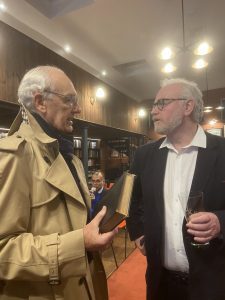
There can be no better tribute than that. Anthony even brought a book to gift to the library (the photo shows him explaining the book to Russell Napier), an examination of past stockmarket failures, which was given to his grandmother in 1933! It was an amazing gift and incredibly thoughtful. He is indeed a generous individual.
The Library of MistakesThe library was set up by my good friend, Russell Napier. Russell is a financial historian and outstanding commentator. The library is dedicated to the idea that investors should learn from the mistakes of history. Anthony was very taken with the idea and donated a rare book. The library regularly hosts events of this nature and you can visit physically or its website and donations are welcome.

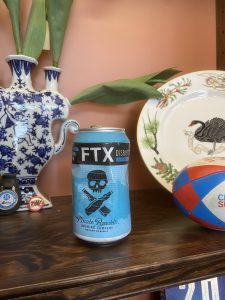
Anthony Bolton left Cambridge University with a degree in engineering to begin a career in the City. He started as a graduate trainee working for Keyser Ullmann in 1971 before taking up a full time position as an assistant in their investment department. In 1976 he moved to Schlesingers where he became, for the first time, an investment manager. In 1979, aged 29, he was recruited by Fidelity, the international fund management group, as one of its first London-based investment managers, a move that proved to be the launch of a long and successful career. In surveys of professional investors, he is regularly voted the fund manager most respected by his peers.
He retired from full-time investment management at the end of 2007, but continues to work at Fidelity as a mentor of the analysts and younger fund managers as well as being involved in overseeing Fidelity’s investment process. His hobby is composing classical music. In 2014 he began composing a two-act opera The Life and Death of Alexander Litvinenko to a libretto by Kit Hesketh-Harvey. The world premiere took place at Grange Park Opera on July 15, 2021, having been preceded there by a public rehearsal on July 13. Anthony Bolton is married with three children and lives in West Sussex.
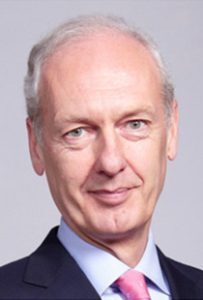
Steve considers Anthony’s book, Investing against the Tide, an investment classic. It should be compulsory reading for all professional investors.
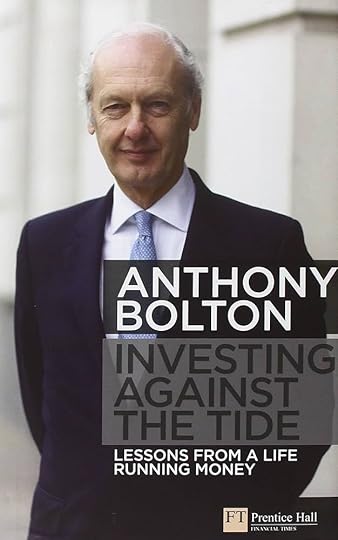 Buy on amazon HOW STEVE KNOWS THE GUEST
Buy on amazon HOW STEVE KNOWS THE GUESTSteve met Anthony at an investment conference and sent him a copy of his book. Anthony not only read the book, but responded with a detailed critique, highlighting what he agreed with and where he differed. Anthony then kindly agreed to have coffee with Steve and eventually to the event at the Library of Mistakes. Networking sometimes works!
Anthony wouldn’t remember it but Steve vividly remembers taking a call from the great man, early in his career. Steve had helped his firm win the brokership of Mersey Docks and had written a large research note. Anthony called up to query one of the numbers and purchased a large holding. It was a multi-bagger. Steve sent Anthony only his best ideas over the next several years – 2 or 3 at most – but never heard from him again!
Chapters
The post #41 – The Composer appeared first on Behind The Balance Sheet.
November 18, 2024
Steve’s article on Masa Son was featured in the FT
The post Steve’s article on Masa Son was featured in the FT appeared first on Behind The Balance Sheet.
October 30, 2024
Bill Nygren podcast was featured in The Acquirer’s Multiple
The post Bill Nygren podcast was featured in The Acquirer’s Multiple appeared first on Behind The Balance Sheet.
Steve had a chat on Schroders’ Value Perspective podcast
The post Steve had a chat on Schroders’ Value Perspective podcast appeared first on Behind The Balance Sheet.
October 28, 2024
Steve was cited by Morningstar
The post Steve was cited by Morningstar appeared first on Behind The Balance Sheet.

